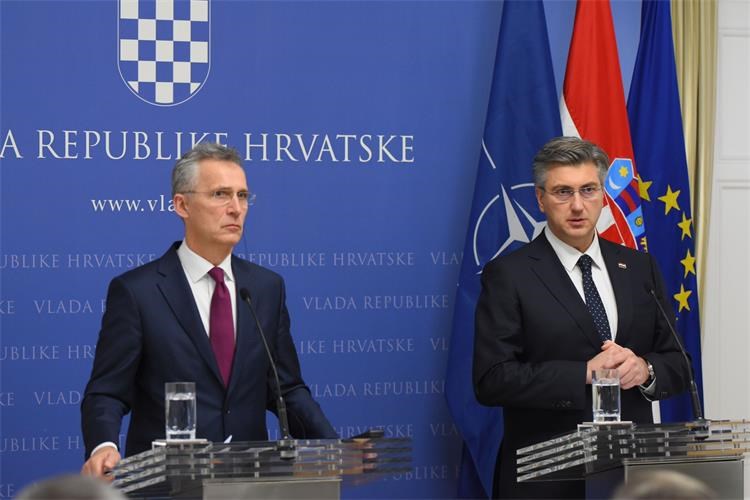


The NATO chief arrived in Zagreb for informal meetings of EU defence and foreign ministers on current security challenges, notably a potential migration crisis.
"Right now we are considering all scenarios. It is important that we are prepared for any escalation," Plenkovic said. It all depends on whether the Greek and Bulgarian borders will remain impenetrable, in which case there will be no major threats, he added.
The Croatian border is guarded by the police and the government will see whether it will be necessary for the military to step in. But all this is just a possibility for now, a fallback plan, as the defence minister put it on Tuesday, Plenkovic stressed.
The prime minister recalled that on Tuesday, together with European Council President Charles Michel, European Commission President Ursula von der Leyen and European Parliament President David Sassoli, he had visited eastern Greece and seen for himself the situation on the ground.
Migrants must not be instrumentalised
"We are fully agreed at the level of the EU, and many of the EU and NATO member states, that there is a clear and firm position that illegal migration should be stopped and that people who are already in a difficult position as refugees or migrants in Turkey should not be instrumentalised or led to believe that the borders are open, because they are not, and in that way provoke additional humanitarian difficulties and crises," Plenkovic said.
He said that it was important to go back to the EU-Turkey statement of 2016, stressing that no one wanted to see a repeat of the situation of four or five years ago.
"For Croatia, it is important to prevent such a situation because we are one of the countries on the Eastern Mediterranean and Western Balkan route. We will try to prevent a new migrant wave in cooperation with other EU and NATO member states," the prime minister said.
Greece bears the brunt of the migrant crisis
Addressing the news conference, NATO's Secretary-General commented on the crisis in Syria and its impact on the alliance and on the European Union member states, describing the situation in the Middle East country as very complex, challenging and unstable.
Stoltenberg condemned "indiscriminate shelling" launched by forces loyal to Syrian President Bashar al-Assad and Russia.
All that has aggravated the terrible suffering of civilians and has caused an increase in the number of refugees heading toward Turkey where there are currently nearly four million refugees, the NATO chief said.
He confirmed that Greece was also feeling the consequences of such developments.
Greece is bearing the brunt of that situation, Stoltenberg said, adding that migrations are a common problem that needs a common response.
He considers the deployment of NATO ships in the Aegean Sea to be still very important, however, the international community has to deal with the causes of the crisis, he added.
A political solution to the crisis in Syria must be found so as to stop the offensive launched by the Assad regime and Russia, Stoltenberg said, calling for the respect of international law and the support of the United Nations' efforts to find a peaceful solution.
He was critical of "increasingly aggressive" action by Russia, recalling the annexation of parts of the territories of Ukraine and Georgia. He accused Russia of resorting to the military force against its neighbours Georgia and Ukraine.
This is the first time since the Second World War for a country to take over parts of the territories of other countries by the use of force, he said.
Stoltenberg praised Croatia for its efforts to raise budget allocations for the defence sector so as to reach the target of 2% of GDP, and for contributing troops to NATO's missions in Poland, Lithuania, Afghanistan, Iraq and Kosovo.
Text: Hina